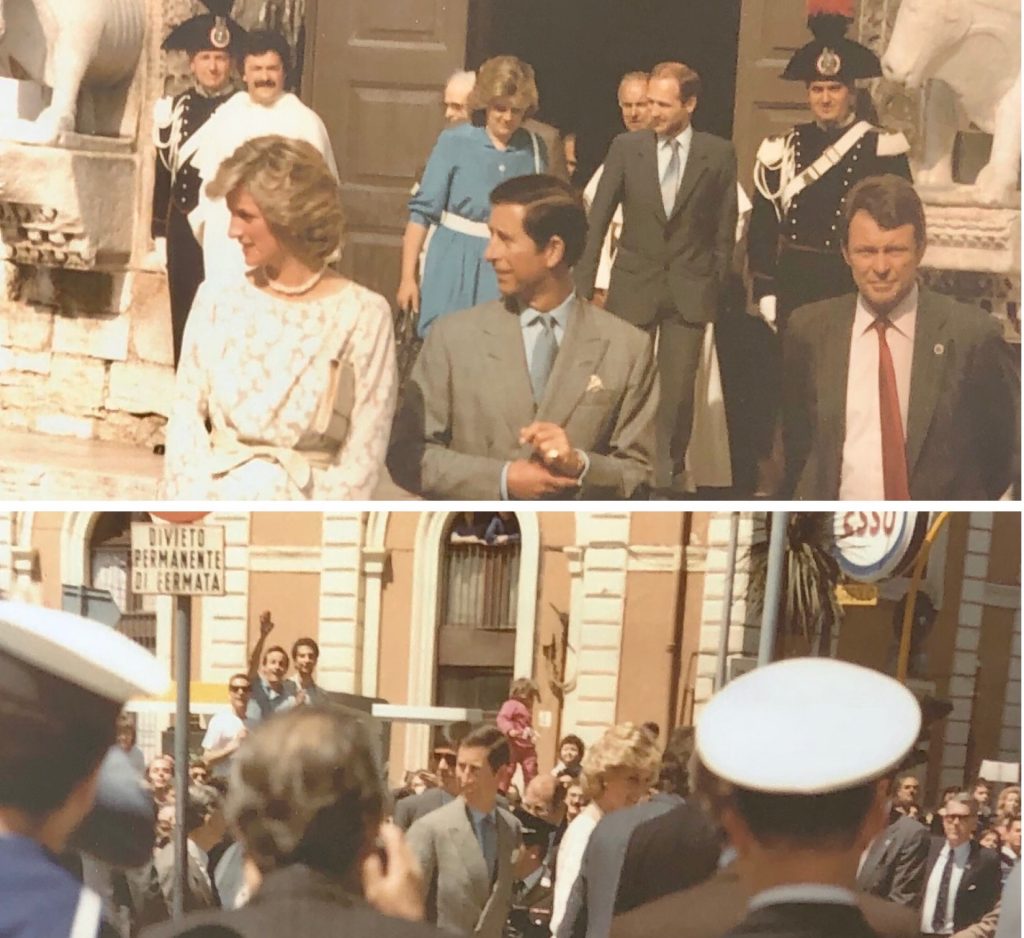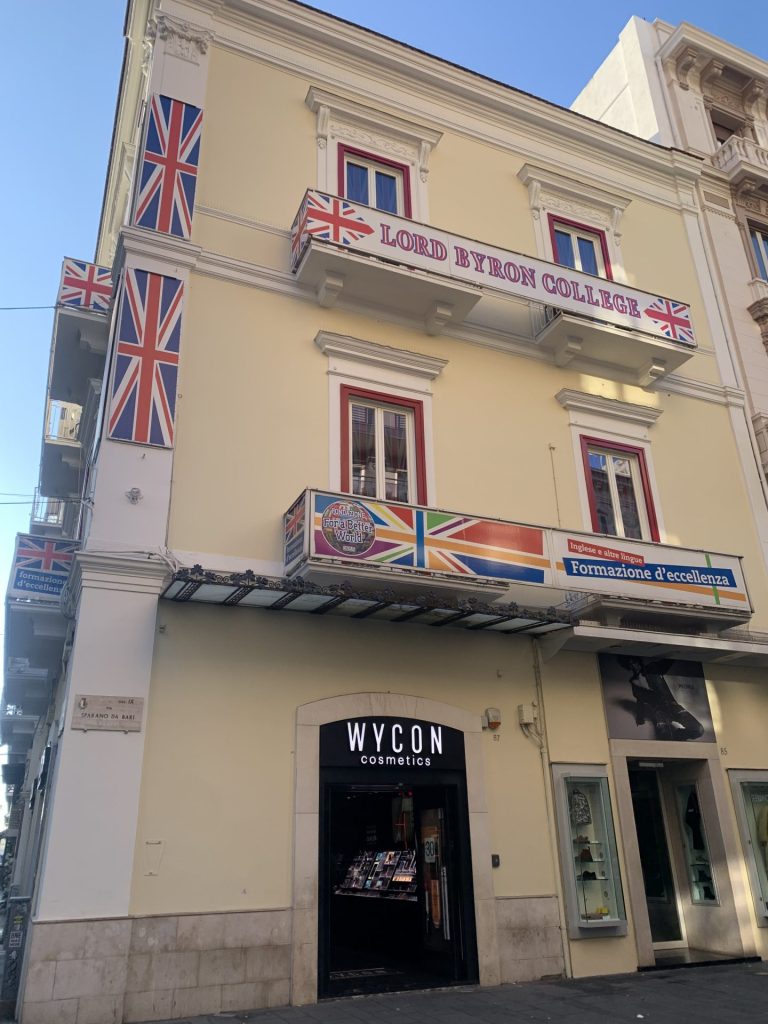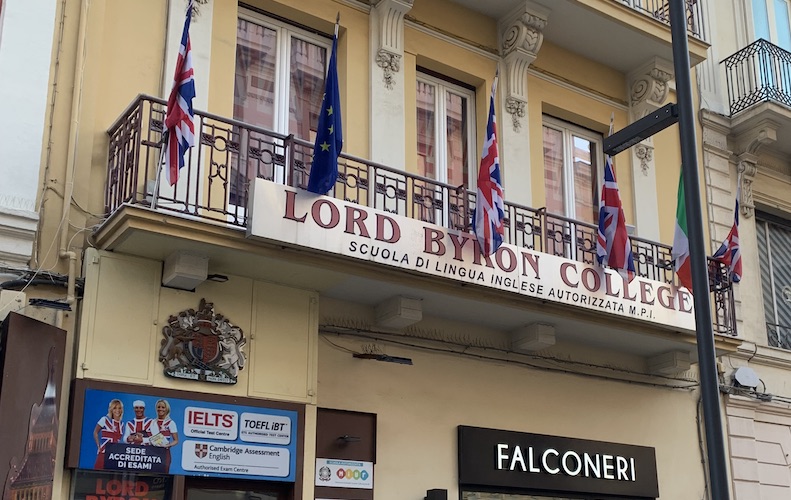Throughout its 50 year history, an English school in the south of Italy has welcomed Lord Mayors of Westminster and even His Majesty the King.
Lord Byron College in Bari, Puglia channels English culture to the south of Italy, and has hosted visits from four Lord Mayors of Westminster: in 1987, Kevin Garden with his wife Baroness Trixie Gardner, a life peer of the House of Lords, in 1988, Lady Elizabeth Flach with her husband Baron Flach, in 1989, Simon Mabey with his family, and in 2022 Hamza Taouzzale for the school’s 50th anniversary.
The city was even honoured with a visit from the then Prince Charles and Princess Diana in 1985.
Recalling the memory of the visit, one of the two founders of the school, John Credico, said: “I remembered the day the beautiful shy Princess Diana stood demurely in front of me, rail thin, pale and in flat shoes.
“Charles was the one who really stole the show, all charisma with piercing blue eyes.”

Today, situated on Bari’s main high street, Via Sparano, proudly adorned with union jacks, Lord Byron College has become the symbol of Bari’s cultural links to the UK.
Over the last 50 years, the Puglian city Bari has seen significant change, beginning as a small port to now being in the Lonely Planet’s top ten Europe destinations.
But, through the rise and fall between tumultuous upheaval and cultural celebration, Bari’s Lord Byron College has been a constant.
The history of the school is written into the history of Bari, having played a large role in the shaping of the city.
Other famous figures like Sir Ronald Arculus in 1978, British Ambassador to Italy at the time, Chief of London’s Fire Brigade Commander Harrington, British actress Miranda Richardson in 2007, ‘Rita Skeeter’ in the Harry Potter series, and many others have also visited the college.
The language school has provided Italian students with a chance to study in London on summer courses and in 1976, when the first attempts at Soviet espionage began to emerge, Lord Byron played a major role in training the Armed Forces, as the multinational operations required a good level of English.
After meeting during their time studying in the University of Alberta, Canada, the two founders of Lord Byron College, John Credico and Andrew Paolillo, decided to take their love of the English language to Italy.
John’s eagerness to go to Italy transpired from two Italian films, ‘La Caduta Degli Dei’ and ‘Nini Tirabusciò’, however he was taken by surprise when his romanticised impression of the country was not the reality.
They arrived in Naples at a time when the cholera epidemic had brought the city to its knees, and it was September in 1973 when Lord Byron College was opened in the Puglian seaside town Trani.
Eventually, the school moved to the Puglian capital Bari, but at this time, it was far from ‘la dolce vita’, portrayed in Italian movies.
1970s Italy was a turmoil of tension due to terrorism, economic crisis and political divide over the divorce and abortion laws.
However, amid the mayhem, Lord Byron College created the first English social club in the city, which became an epicentre for culture.

While the social club was a huge success, things certainly were not smooth-sailing.
Revealing what happened on one occasion, John said: “The pub was packed with people. Among them was one of our students, accompanied by her boyfriend who, unknown to us, was the local leader of the extreme right. Word spread fast. Around midnight, as people started going downstairs to leave, we heard shouts: “The door won’t open, it’s locked!”.
“A hundred of us were trapped inside the building. The Fire department arrived and cut through the large chains that were blocking the door from the outside.
“Given the mood at the time, we were sure that something much worse could have taken place that night. Years later, that doubt still lingers.”
Jumping forward in time, in 1978 the British Embassy in Rome organised a “British Week” in Bari to develop trade with the UK. The British Ambassador to Italy at the time, Sir Ronald Arculus, invited Lord Byron College to play a central role in the opening and closing ceremonies.
While this was a flourishing success in uniting English and Italian culture, tensions were inflamed following the incident at Belgium’s Heysel stadium in 1985.
At the Champions League Cup Final between Juventus and Liverpool, Liverpool fans initiated a crowd-crushing disaster that saw 600 were injured and 39 killed – 33 of whom were Italians.
In Bari, this aggression was projected on Lord Byron College as the symbol of English culture.
Describing the aftermath of this event, Andrew explained: “The day after the tragic episode in Brussels, local thugs smashed the signs and windows of Lord Byron College and tried to break down the front door.
“Our English teachers were forced to barricade themselves inside. Fearing the worst, the police patrolled Lord Byron College all night.”
But, through struggle, the school triumphed, as by 2019 Lord Byron College had achieved the highest number of perfect inspections for 20 years and was nominated first place at the Cambridge Assessment’s European conference out of all the 238 other Cambridge examination centres in Europe and North Africa.
Now, after 50 years of accumulating stories, John and Andrew are set to publish a book on the school’s history to commemorate the recent confirmation of its Foundation status.
John said: “Our wish is that we will be able to continue to meet the needs of our students creatively and effectively and to contribute to the cultural growth of Bari, our adopted city.”
The school has been the city’s cultural torch through uncertain times, and has enabled Bari to become the hugely multi-cultural, seaside suburb it is today.
Visiting Bari without including the college on one’s ‘historical visits’ itinerary would be forgetting that the school is integrated in the origins of the newly flourishing culture of the city, where it has been transformed from a once ‘off-the-beaten-track’ location into a popular tourist escape.
Feature image credit: Jasmine Laws





